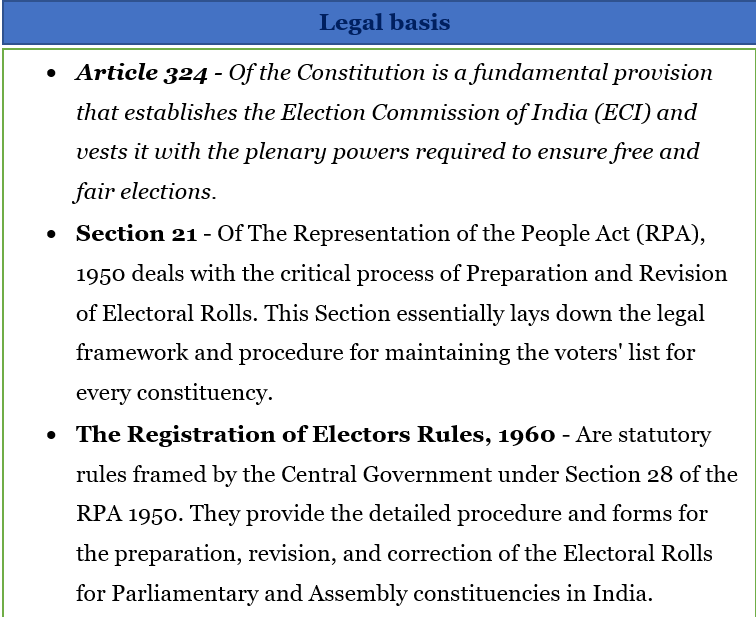Mains: GS - II – Polity & Governance | Elections & Salient features of the Representation of People’s Act
Why in news?
The Election Commission of India (ECI) has initiated the Special Intensive Revision (SIR) 2.0 across 12 States and Union Territories (UT). While the exercise is significant, caution is essential as it may inadvertently exclude eligible voters.
What is Special Intensive Revision (SIR) 2.0?

What are the key features and provisions of SIR 2.0?
No document is required during the enumeration process.
To Know about Various Electoral Forms & SIR, click here
What are the issues that associated with SIR 2.0?
What need to be done to address the shortcomings of SIR 2.0?
A social audit is a public review where people examine official records and share testimonies to confirm or question the information - When done at the panchayat, ward, or booth level, it becomes the most effective way to revise electoral rolls.
References